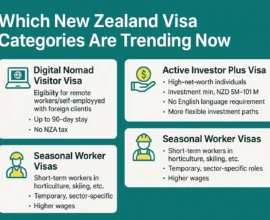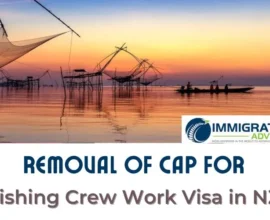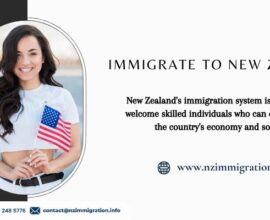The Parent Boost Visitor Visa represents a significant step forward in reuniting families across borders, allowing the parents of New Zealand citizens and residents to stay for extended periods. As part of our continued efforts to keep families close without overburdening the public system, we offer a detailed overview of the Parent Boost Visa NZ, including its benefits, eligibility criteria, financial requirements, and application procedures.
Table of Contents
What Is the Parent Boost Visitor Visa?
The Parent Boost Visitor Visa is a long-term, multiple-entry visa allowing eligible parents to visit New Zealand for up to five years, with the possibility of renewal for another five years — totaling a potential 10-year stay. This visa caters to families wishing to remain connected, without creating a path to residency.
Key Benefits of the Parent Boost Visa
- Multiple-Entry Visa: Travel in and out of New Zealand with ease over the visa’s duration.
- Extended Family Time: Remain close to children and grandchildren for up to a decade.
- Support Without Residency: Enables family reunification while protecting public resources.
- Defined Sponsorship and Health Requirements: Ensures sustainable and responsible long-term visits.
Eligibility Criteria for the Parent Boost Visa NZ
To qualify for the Parent Boost Visa, applicants must meet specific eligibility benchmarks across character, health, sponsorship, and financial dimensions.
1. Good Character Requirement
Applicants must pass New Zealand’s standard character assessment, which includes:
- Police clearance certificates
- No history of criminal offenses or deportations
2. Health Standards
Two health checks are mandatory:
- Initial Medical Exam: Conducted during the visa application
- Third-Year Reassessment: Conducted outside New Zealand to ensure ongoing fitness for stay
Sponsorship Obligations
A parent must be sponsored by their:
- Biological or legally adopted child
- Who is a New Zealand citizen or permanent resident
Sponsor Responsibilities:
- Financial coverage for accommodation, food, and basic needs
- Emergency expenses including deportation or repatriation if required
- Ensuring the parent maintains valid health insurance
Financial Requirements for Applicants and Sponsors
Applicants must satisfy one of the following income or asset thresholds:
| Option | Requirements |
|---|---|
| Sponsor’s Income | NZD median wage or 1.5x for joint sponsors per parent |
| Parent’s Own Income | NZD $32,611.28/year (single) or $49,552.88/year (couple) |
| Parent’s Personal Funds | NZD $160,000 (single) or $250,000 (couple) |
These criteria ensure that applicants do not become financially dependent on public services.
Mandatory Health Insurance Requirements
To protect both the applicant and the healthcare system, visa holders must have comprehensive private health insurance, covering:
- Emergency Medical Treatment: Minimum NZD $250,000/year
- Cancer Care: At least NZD $100,000/year
- Repatriation and Return of Remains
Insurance Duration: Coverage must extend throughout the visa’s full period, and lapses may result in visa cancellation or future ineligibility.
Visa Costs and Associated Fees
| Fee Type | Standard Applicants | Pacific Fee Band Applicants |
|---|---|---|
| Visa Application Fee | NZD $3,000 | NZD $2,450 |
| Tourism Levy (IVL) | NZD $100 | NZD $100 |
| 3rd-Year Health Check Fee | NZD $325 | NZD $240 |
These fees reflect New Zealand’s balanced approach between accessibility and system sustainability.
Application Timeline and Process
- Application Opening Date: 29 September 2025
- Application Mode: Online through the official immigration portal
- Documents Required:
- Valid passport
- Proof of sponsorship
- Financial documentation
- Health and character certificates
- Health insurance policy proof
We recommend early preparation to streamline the application process once submissions open.
Visa Duration and Renewals
The initial grant is for five years, with an option to reapply for an additional five years. Applicants must:
- Maintain valid health insurance
- Undergo required health checks
- Continue to meet all eligibility standards at the time of renewal
Parent Boost Visa Is Not a Pathway to Residency
The Parent Boost Visa does not lead to permanent residency. Parents seeking long-term settlement should explore:
- Parent Resident Visa: Capped at 2,500 places per year
- Parent Retirement Resident Visa
- Expression of Interest (EOI) under the Parent Category
Alternatives to the Parent Boost Visitor Visa
| Visa Type | Duration | Eligibility Highlights |
|---|---|---|
| Parent and Grandparent Visitor Visa | Up to 18 months | Short-term family visits |
| Parent Resident Visa | Permanent | For those meeting income and sponsorship caps |
| Parent Retirement Resident Visa | Permanent | Based on investment and income qualifications |
Recommended Diagram: Visa Options Comparison
graph TD A[Parent Visa Options] --> B[Parent Boost Visitor Visa] A --> C[Parent Resident Visa] A --> D[Parent Retirement Resident Visa] B --> E[Stay up to 10 years] C --> F[Capped at 2,500 per year] D --> G[Requires investment and income criteria]
Frequently Asked Questions
Q: Can multiple parents be sponsored under one sponsor?
Yes, but the sponsor must meet higher income thresholds for each additional parent.
Q: Can I apply for permanent residence while holding a Parent Boost Visa?
You must apply separately under the Parent Resident Visa category; the Boost Visa does not convert to residence.
Q: Will I have access to public healthcare?
No. All healthcare must be covered privately via approved insurance.
Also Read: Trending New Zealand Visas in 2025
Conclusion
The Parent Boost Visitor Visa offers an unparalleled opportunity for families to stay connected in New Zealand over the long term. It is ideal for parents seeking extended visits without residency, supported by strong financial and health assurances. We encourage eligible families to begin preparing now for the September 2025 application opening, ensuring all documentation and insurance are in order.
For families separated by distance, this visa is a bridge of love, care, and togetherness — thoughtfully designed to prioritize both familial bonds and New Zealand’s public interest.
Source: Click Here





